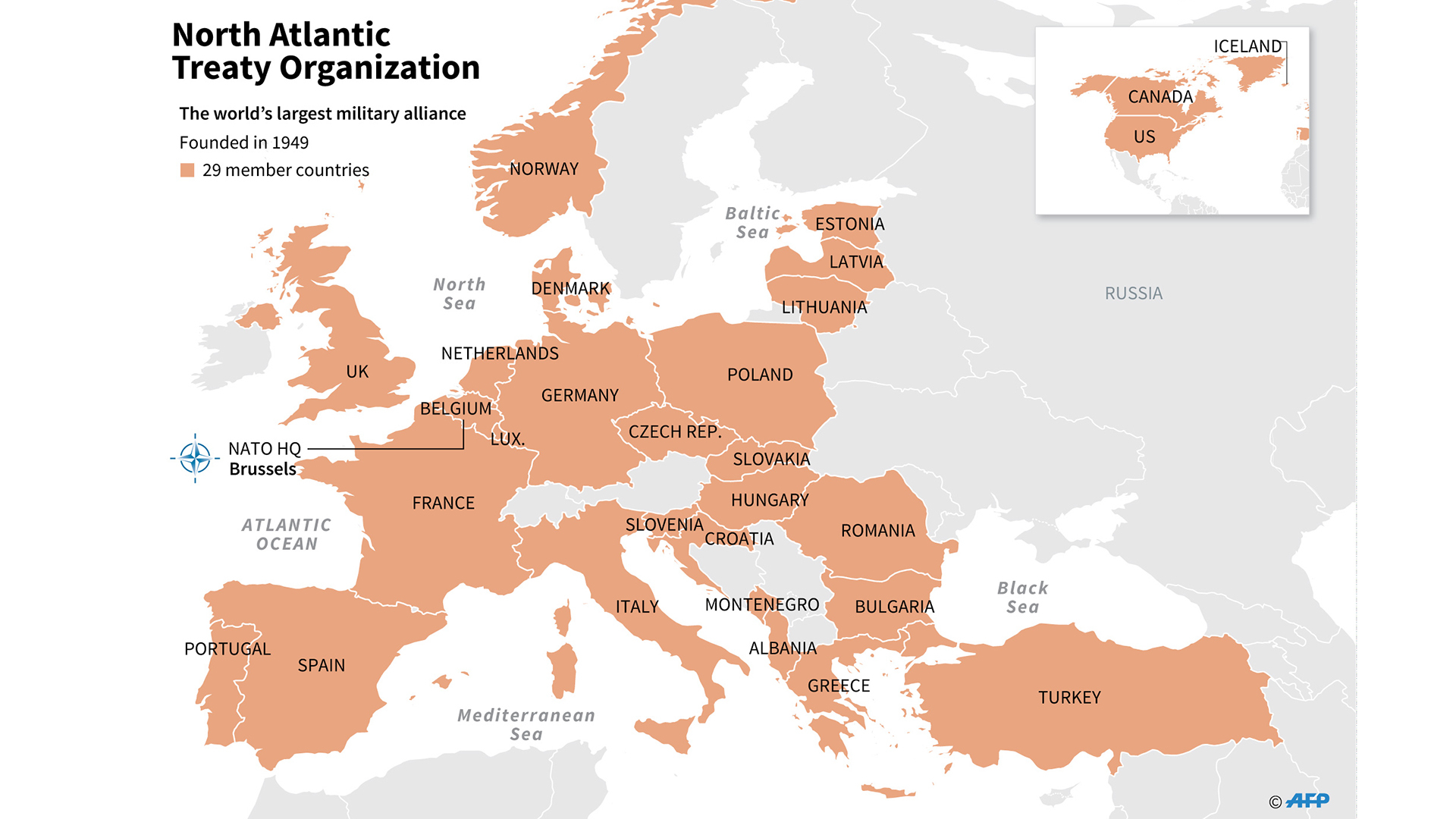NATO Membership

Nato members – The North Atlantic Treaty Organization (NATO) is a military alliance of 30 member states from North America and Europe. It was established in the aftermath of World War II to prevent another such conflict.
NATO members have been discussing the latest joe biden news with great interest. Biden’s policies have significant implications for the alliance, and members are eager to learn more about his plans. The discussions have been constructive, and members are hopeful that they can work together to strengthen the alliance and address the challenges facing the world.
To join NATO, a country must meet certain criteria, including: being a European state, having a democratic government, and being able to contribute to the collective defense of the alliance. The process of joining NATO typically takes several years and involves a series of steps, including submitting a formal application, undergoing a review of the country’s qualifications, and signing the North Atlantic Treaty.
As NATO members gathered in Madrid, President Biden’s speech outlined the challenges facing the alliance. He emphasized the importance of unity and resolve in countering Russian aggression and other threats. The members reaffirmed their commitment to the collective defense of NATO and pledged to strengthen their military capabilities.
Current NATO Members
The following is a list of the current NATO members:
| Country | Date of Accession |
|---|---|
| Albania | 2009 |
| Belgium | 1949 |
| Bulgaria | 2004 |
| Canada | 1949 |
| Croatia | 2009 |
| Czech Republic | 1999 |
| Denmark | 1949 |
| Estonia | 2004 |
| France | 1949 |
| Germany | 1955 |
| Greece | 1952 |
| Hungary | 1999 |
| Iceland | 1949 |
| Italy | 1949 |
| Latvia | 2004 |
| Lithuania | 2004 |
| Luxembourg | 1949 |
| Montenegro | 2017 |
| Netherlands | 1949 |
| North Macedonia | 2020 |
| Norway | 1949 |
| Poland | 1999 |
| Portugal | 1949 |
| Romania | 2004 |
| Slovakia | 2004 |
| Slovenia | 2004 |
| Spain | 1982 |
| Turkey | 1952 |
| United Kingdom | 1949 |
| United States | 1949 |
NATO’s Role in Global Security

NATO, the North Atlantic Treaty Organization, is an intergovernmental military alliance between 30 North American and European countries. NATO’s mission is to guarantee the freedom and security of its members through political and military means. The organization was established in 1949 in response to the threat posed by the Soviet Union and its satellite states.
Promoting Stability and Security in Europe
NATO has played a vital role in promoting stability and security in Europe. The organization has helped to prevent war between its members and has deterred potential aggressors. NATO has also helped to resolve conflicts in Europe, such as the Yugoslav Wars and the Kosovo War.
Responding to International Crises
NATO has also played a role in responding to international crises outside of Europe. The organization has participated in peacekeeping operations in Bosnia, Kosovo, and Afghanistan. NATO has also provided humanitarian assistance in response to natural disasters, such as the 2010 Haiti earthquake and the 2011 Japan earthquake and tsunami.
Challenges Facing NATO
NATO faces several challenges, including terrorism, cyber threats, and hybrid warfare. Terrorism poses a significant threat to NATO members, as it can destabilize countries and regions, leading to humanitarian crises and security risks. Cyber threats, such as cyberattacks and cyber espionage, can disrupt critical infrastructure, steal sensitive information, and undermine public trust. Hybrid warfare, which combines conventional and unconventional tactics, can be difficult to counter and can blur the lines between war and peace.
NATO’s Efforts to Address These Challenges
NATO has taken several steps to address these challenges. The organization has developed a comprehensive counter-terrorism strategy, which includes measures to prevent, deter, and respond to terrorist attacks. NATO has also established a cyber defense center to help members defend against cyber threats. Additionally, NATO has adopted a new strategic concept that recognizes the importance of countering hybrid warfare.
The Future of NATO
NATO remains a vital alliance for global security. The organization provides a forum for consultation and cooperation among its members, and it helps to deter potential threats. NATO is also playing an increasingly important role in addressing new challenges, such as terrorism, cyber threats, and hybrid warfare. As the security landscape continues to evolve, NATO will need to adapt to meet new challenges and ensure the security of its members.